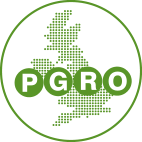Development of Dutch soya value chain with Agrifirm (The Netherlands)

The Netherlands is a large importer of soya products for feed purposes. The country imports more than 8 million tons of soya products. Part of this is exported again, but the net Dutch consumption for compound feed products is estimated at around 2 million tons. These large volumes and the large corresponding number of animals in the country have triggered much debate on the sustainability of soya. One of the most important producers of compound feed products in the Netherlands is Agrifirm, a cooperative with around 17,000 Dutch members. Being aware of the special corporate social responsibility towards the sustainability aspects of soya production, the company started to look for domestic and regional alternatives for soya import. After a phase of exploration, the company decided that European soya would be the best alternative for import soya. In 2011 and 2012, the company developed two soya varieties for Dutch circumstances and started producing soya at farm level in 2013 with 11 farmers on 30 ha.
Parallel to this, Wageningen University & Research started field research directed at agronomic issues (exploration of available varieties, nitrogen nutrition, seed rates and nematode damage and multiplication) in close collaboration with Agrifirm. In later years, the number of farmers involved as well as the area increased to around 80 farmers and >400 ha. Then, the focus was partly moved to the food sector. In 2016, the company started a co-operation with the food producer Alpro which has the strategy to source more of their soya need from Europe. It also started a co-operation with three northern provincial governments and the national government (green deal) with the final aim to grow 10,000 ha of soya in the Netherlands.



